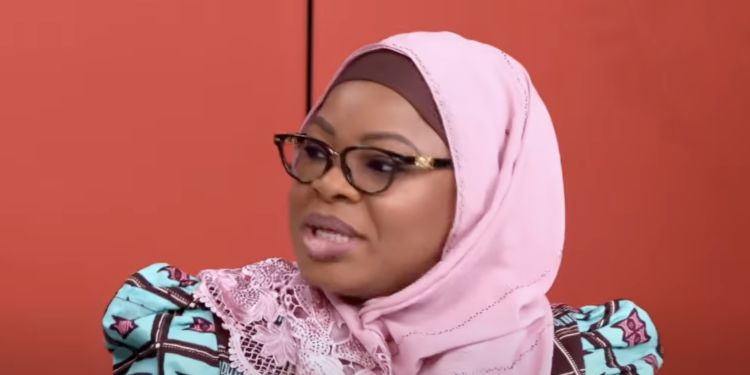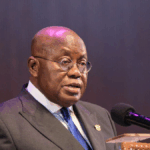
The government has outlined key sectors where funds saved from the recently scrapped free fuel allocation for political appointees will be reinvested.
Speaking on JoyFM on Tuesday, July 15, Deputy Presidential Spokesperson Shamima Muslim detailed the administration’s commitment to channelling these savings into critical social and development programmes, reinforcing President Mahama’s “reform and reset agenda”.
The directive, which eliminates free fuel for the everyday use of political appointees, is a significant move aimed at curbing wastage and promoting the productive use of state resources.
This initiative follows President Mahama’s manifesto promise to hold all appointees to strict ethical standards and ensure prudent resource management.
“There is no more free fuel allocation to political appointees in government,” Muslim stated.
She clarified that while fuel would still be provided for “strictly regulated, official assignments”, daily commutes and personal use would no longer be covered by the state.
She added that detailed parameters and categories of approved assignments would be communicated to all appointees, similar to the existing Code of Conduct.
This fuel directive is part of broader cost-cutting reforms initiated at the presidency.
Muslim highlighted that “a few days ago, there was a directive on what kinds of travel the government will pay for, what kinds of travel they won’t pay for and what kinds of travel would even be approved for you to attend.”
Earlier measures under President Mahama’s administration also included the cancellation of DSTV subscriptions for government officials, all aimed at “eliminating wastage in the system and also ensuring more savings.”
The government is currently quantifying the exact savings from this fuel policy, with figures expected to be made public in due course.
“As we speak now, remember that this is a new directive. So, again, there’s been a further directive to now cost all of it, how much we will be saving, how much we’re spending on fuel,” Muslim explained.
Priority Investment Areas:
Shamima Muslim explicitly identified several key areas that will directly benefit from these cost-saving measures and other ongoing financial prudence efforts:
- Health Sector:
- Beyond the specific Mahama Care Programme, health in general is listed as a priority area for intervention, signifying a broader commitment to improving health infrastructure and services across the country.
- Education Sector:
- Education is identified as another crucial area for investment. Significantly, Muslim highlighted the timely release of funds for student feeding. She revealed that “as we speak, 600 million Ghana Cedis has been given to schools for feeding since the beginning of this year,” showcasing a direct benefit from improved resource allocation. This support for the Ghana School Feeding Programme is vital for student welfare and attendance, especially in public basic schools.
- Local Governments (Assemblies):
- A substantial portion of the budget will be allocated to local government assemblies. Muslim hinted at further details to be revealed during the mid-year budget review on July 24.
- “We would hear more details about how 80% allocation has been made to the assemblies,” she stated. This commitment aims to strengthen decentralisation and empower local authorities to drive development at the grassroots level, in line with Ghana’s decentralisation policy.
Ms Muslim assured the public of accountability for the saved funds.
“Because of the Public Finance Management Act, we do know there are more stringent ways of tracking what goes into the consolidated fund and what, you know, EMR funds to track what we’re using the money for,” she affirmed, citing legal frameworks that ensure transparency.
She also noted that the “new directive” on fuel is intended to be a long-term policy, signifying a sustained commitment to prudent resource allocation.
This measure complements the broader efforts to stabilise the Ghanaian economy, including the cedi’s recent strong performance and the $5 billion inflows from Gold Board operations since January, as well as the ongoing efforts under the IMF programme to restore macroeconomic stability and debt sustainability.
The mid-year budget review by the Finance Minister on July 24 is expected to provide more comprehensive details on the financial impact of these reforms and the specific allocations to the identified priority areas, offering greater transparency on how the government intends to translate cost-cutting into tangible development outcomes for Ghanaians.
DISCLAIMER: The Views, Comments, Opinions, Contributions and Statements made by Readers and Contributors on this platform do not necessarily represent the views or policy of Multimedia Group Limited.
DISCLAIMER: The Views, Comments, Opinions, Contributions and Statements made by Readers and Contributors on this platform do not necessarily represent the views or policy of Multimedia Group Limited.
- President Commissions 36.5 Million Dollars Hospital In The Tain District
- You Will Not Go Free For Killing An Hard Working MP – Akufo-Addo To MP’s Killer
- I Will Lead You To Victory – Ato Forson Assures NDC Supporters
Visit Our Social Media for More



